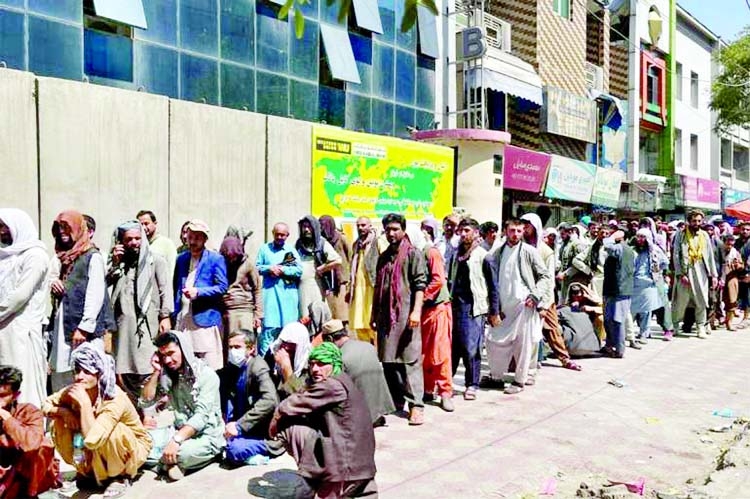
Al jazeera :
In its latest report to the United States Congress, the Special Investigator General for Afghanistan Reconstruction (SIGAR) has detailed Washington’s decision to cut off the Taliban government’s access to billions in funds and assets that has led to devastation across the cash-strapped nation.
The top watchdog report says that over the 20-year US occupation, Washington spent $146bn in Afghanistan’s reconstruction, including $89bn on training and supporting the country’s National Security Forces “which no longer exists”.
The report goes on to say that “other reconstruction objectives, such as to assist women and girls or to establish the rule of law, are under direct threat from the new Taliban regime”.
After the Taliban toppled the Western-led government in the middle of August, the US, along with international bodies including the World Bank and the International Monetary Fund (IMF), decided to cut off Afghanistan’s access to more than $9.5bn in assets and loans.
The decision has had a devastating effect on Afghanistan’s’s healthcare and other sectors, all of which are struggling to continue operations amid cutbacks to international aid.
According to the World Bank, approximately 14 million people – one out of three Afghans – were on the brink of starvation due to the aid cuts until the end of the last month. Sulaiman Bin Shah, the former deputy minister of Industry and Commerce, said the decisions by the US, World Bank and IMF led to more engagement by the United Nations and the European Union in the humanitarian crisis unfolding in Afghanistan.
“The UN immediately went into action and restarted its efforts. That did a lot for UN’s image and its perception among the Afghan people,” Bin Shah told Al Jazeera from Kabul.
Likewise, he cited last week’s announcement by the EU to reopen its embassies in Kabul in November. “That was one of the few positive developments out of all this,” Bin Shah said.
However, with the harsh winter fast approaching, Bin Shah said the Afghan people “are paying a huge price because of the slow pace of diplomatic processes and negotiations”.
Immediately after the Taliban takeover of Afghanistan, most banks, which were already dealing with an enormous rush of people desperate to withdraw their money, shut their doors. It took them weeks to reopen.
“They told us: ‘We can’t transfer money to Afghanistan because the banks told us they have no money to give out’,” said an Afghan-American woman, who did not wish to be identified.

